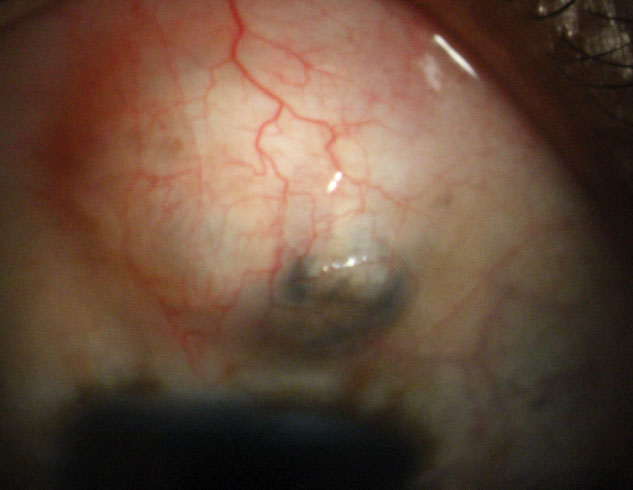 |
|
While vision-related-QoL scores were unchanged in glaucoma patients 12 months after trabeculectomy, there was a postoperative improvement in the mental health subscale and worsening in general health and role difficulty. Photo: Justin Schweitzer, OD. Click image to enlarge. |
Trabeculectomy is the most performed surgical procedure for glaucoma, indicated to lower intraocular pressure and slow disease progression. Clinical metrics such as IOP and visual field assessment are often used to evaluate treatment success; however, patient-reported outcomes, specifically vision-related quality of life (VR-QoL), can provide valuable insights into the subjective experiences of glaucoma patients. Interestingly, a new study found that VR-QoL was similar in patients before and after trabeculectomy and did not correlate with clinical parameters.
In the study, 58 glaucoma patients (mean age: 71; 45% female) completed the 25-item National Eye Institute Visual Function Questionnaire (VFQ-25) before and 12 months after trabeculectomy. The researchers assessed the association between VR-QoL and parameters of function (visual acuity and visual fields) and structure (ganglion cell layer volume). IOP and number of glaucoma medications were also factored into the analyses.
The results showed no change between patients’ VFQ-25 composite scores (zero to 100) before and after the procedure (before: 74.9; 12 months post-op: 74.0). The researchers noted an increase in the mean score of the mental health subscale 12 months after trabeculectomy (before: 65.6; 12 months: 71.4). However, scores decreased at 12 months postoperatively for the subscales of general health (before: 68.5; 12 months: 62.5) and role difficulties (before: 78.9; 12 months: 53.7).
“The increase in the mental health subscale score may suggest a positive effect of trabeculectomy on patients' emotional well-being and mental state post-surgery,” the researchers explained in their paper on the study, published in Acta Ophthalmologica. “This could reflect an improvement in their ability to cope with the stress and anxiety associated with having a potentially blinding eye condition.”
One finding that the researchers say warrants attention is the decrease in the role difficulties subscale after surgery, as this “reflects challenges in fulfilling daily responsibilities and engaging in activities due to vision-related impairments.” They surmised that this result “could be related to the increased number of doctor visits after surgery or the dependency of others on being able to attend visits or use eye drops” and suggested that “further exploration of the factors contributing to this decline is warranted to optimize postoperative care.”
Notably, the researchers also found that no functional or structural parameters were associated with the VFQ-25 composite score. "The lack of significant correlations between changes in VR-QoL and clinical parameters underscores the multifactorial nature of VR-QoL and the limitations of relying solely on objective clinical metrics to assess patients' subjective experiences,” they emphasized in their paper. Accordingly, the researchers suggest that clinicians conduct more comprehensive evaluations on their glaucoma patients using validated instruments such as the VFQ-25 to provide more patient-centered care. While acknowledging the value of this survey, the authors also suggest a need for more sensitive instruments to measure changes in VR-QoL following glaucoma surgery that the VFQ-25 fails to illuminate. For example, “factors such as drop intolerance, uncontrolled IOP or severe visual field defects may have varying impacts on patients' perceptions of VR-QoL post-surgery,” they explained in their paper.
To summarize this research, the authors reiterate their two main conclusions:
- The lack of change in VR-QoL after trabeculectomy reflects the procedure's stabilizing effect on both objective and subjective visual function.
- The absence of explanatory factors for the alteration in VR-QoL emphasizes the multifaceted nature of VR-QoL and the limitations of relying solely on objective clinical metrics to assess patients' subjective experiences.
von Arenstorff MM, Ahmadzadeh A, Schmidt BS, Kessel L, Bach-Holm D. Vision-related quality of life in patients with glaucoma before and after trabeculectomy. Acta Ophthalmologica. April 24, 2024. [Epub ahead of print]. |


